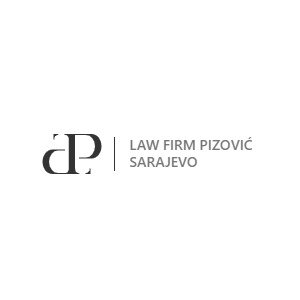Best Sanctions & Export Controls Lawyers in Sarajevo
Share your needs with us, get contacted by law firms.
Free. Takes 2 min.
List of the best lawyers in Sarajevo, Bosnia and Herzegovina
About Sanctions & Export Controls Law in Sarajevo, Bosnia and Herzegovina
Sanctions and Export Controls law in Sarajevo, Bosnia and Herzegovina, regulates the movement of goods, technologies, financial assets, and services across national borders. These legal frameworks are designed both to comply with international obligations and to ensure the security and economic interests of the country. Bosnia and Herzegovina, as a member of the United Nations and a country with aspirations towards European Union integration, aligns its sanctions and export control regulations with international benchmarks. Local laws are implemented primarily through national legislation, under the oversight of competent authorities such as the Ministries of Foreign Trade, Security, and the Customs Administration.
Why You May Need a Lawyer
Dealing with sanctions and export controls can be complex, especially for individuals and businesses engaged in cross-border transactions or those seeking to import or export sensitive products and technologies. You may need a lawyer in situations such as:
- Facing investigation or enforcement actions for suspected breach of sanctions or export controls
- Seeking to export dual-use goods, chemicals, or advanced technologies
- Engaging in trade with countries or entities subject to international sanctions
- Responding to frozen assets or blocked accounts due to sanctions lists
- Negotiating contracts that involve international trade partners
- Needing a legal assessment of goods classifications or license requirements
- Addressing customs clearance issues connected to export or import controls
Local Laws Overview
Bosnia and Herzegovina’s sanctions and export controls operate under several key pieces of legislation and in coordination with international law. Key aspects include:
- The Law on Foreign Trade Policy, which governs general export and import controls
- The Law on Customs Policy and the Customs Tariff, detailing procedures for goods at borders
- Adoption of the EU and United Nations sanctions lists, which restrict transactions with specific countries, entities, or individuals
- Controls on dual-use goods and technologies, requiring licenses for certain exports
- Mechanisms for freezing assets of those listed under sanctions
- Involvement of the Ministry of Foreign Trade and Economic Relations, which oversees licensing and ensures compliance
- Coordination with the Ministry of Security on sensitive goods such as armaments
Frequently Asked Questions
What are sanctions, and how do they affect businesses in Sarajevo?
Sanctions are restrictions or prohibitions on trade, financial transactions, or other dealings with specific countries, entities, or individuals. In Sarajevo, businesses must ensure they do not violate sanctions laws, as this can lead to legal consequences.
Which government agencies oversee sanctions and export controls in Bosnia and Herzegovina?
Key agencies include the Ministry of Foreign Trade and Economic Relations, the Ministry of Security, and the Indirect Taxation Authority (Customs Administration).
Who needs an export license in Sarajevo?
Anyone exporting controlled or dual-use goods, such as chemicals, technologies, military equipment, or certain software, may require an export license.
How can I check if a person or company is subject to sanctions?
You can consult official lists published by the United Nations, European Union, and relevant government authorities or seek legal advice for due diligence checks.
What are dual-use goods?
Dual-use goods are items, software, or technologies that can be used for both civilian and military applications. These are strictly controlled and usually require an export license.
What penalties exist for violating sanctions or export control regulations?
Penalties can include hefty fines, confiscation of goods, cancellation of licenses, and in severe cases, criminal charges.
Can I export goods to a country that is under international sanctions?
Generally, you cannot export goods to a country under sanctions. There may be some exemptions, but you must obtain explicit authorization from competent authorities.
How long does it take to obtain an export license?
Processing times vary depending on the goods and the countries involved, but you should plan for several weeks to complete the application and approval process.
Are cryptocurrencies or virtual assets covered under sanctions and export controls?
While not specifically listed in all regulations, transactions involving cryptocurrencies or virtual assets may fall under financial sanctions if they involve sanctioned individuals or entities.
Should small businesses be concerned about sanctions and export controls?
Yes. Any business involved in cross-border commerce must ensure compliance with all relevant laws to avoid legal risks and potential penalties.
Additional Resources
If you need more information or official documentation, consider consulting the following resources and organizations:
- Ministry of Foreign Trade and Economic Relations of Bosnia and Herzegovina
- Ministry of Security of Bosnia and Herzegovina
- Indirect Taxation Authority (Customs Administration)
- Chamber of Commerce of the Federation of Bosnia and Herzegovina
- Official Gazettes publishing laws and regulations on sanctions and export controls
- Local and international law firms with expertise in sanctions and export controls
Next Steps
If you believe you require legal assistance with sanctions or export controls in Sarajevo, you should:
- Gather all relevant documents and information about your situation and any transactions at issue
- Consult reputable legal professionals who specialize in this field
- Request a preliminary assessment of your case and clarify any immediate risks or deadlines
- Work with your lawyer to develop a compliance plan or defense strategy, as needed
- Stay informed about ongoing legal developments and updates to regulations
Lawzana helps you find the best lawyers and law firms in Sarajevo through a curated and pre-screened list of qualified legal professionals. Our platform offers rankings and detailed profiles of attorneys and law firms, allowing you to compare based on practice areas, including Sanctions & Export Controls, experience, and client feedback.
Each profile includes a description of the firm's areas of practice, client reviews, team members and partners, year of establishment, spoken languages, office locations, contact information, social media presence, and any published articles or resources. Most firms on our platform speak English and are experienced in both local and international legal matters.
Get a quote from top-rated law firms in Sarajevo, Bosnia and Herzegovina — quickly, securely, and without unnecessary hassle.
Disclaimer:
The information provided on this page is for general informational purposes only and does not constitute legal advice. While we strive to ensure the accuracy and relevance of the content, legal information may change over time, and interpretations of the law can vary. You should always consult with a qualified legal professional for advice specific to your situation.
We disclaim all liability for actions taken or not taken based on the content of this page. If you believe any information is incorrect or outdated, please contact us, and we will review and update it where appropriate.












